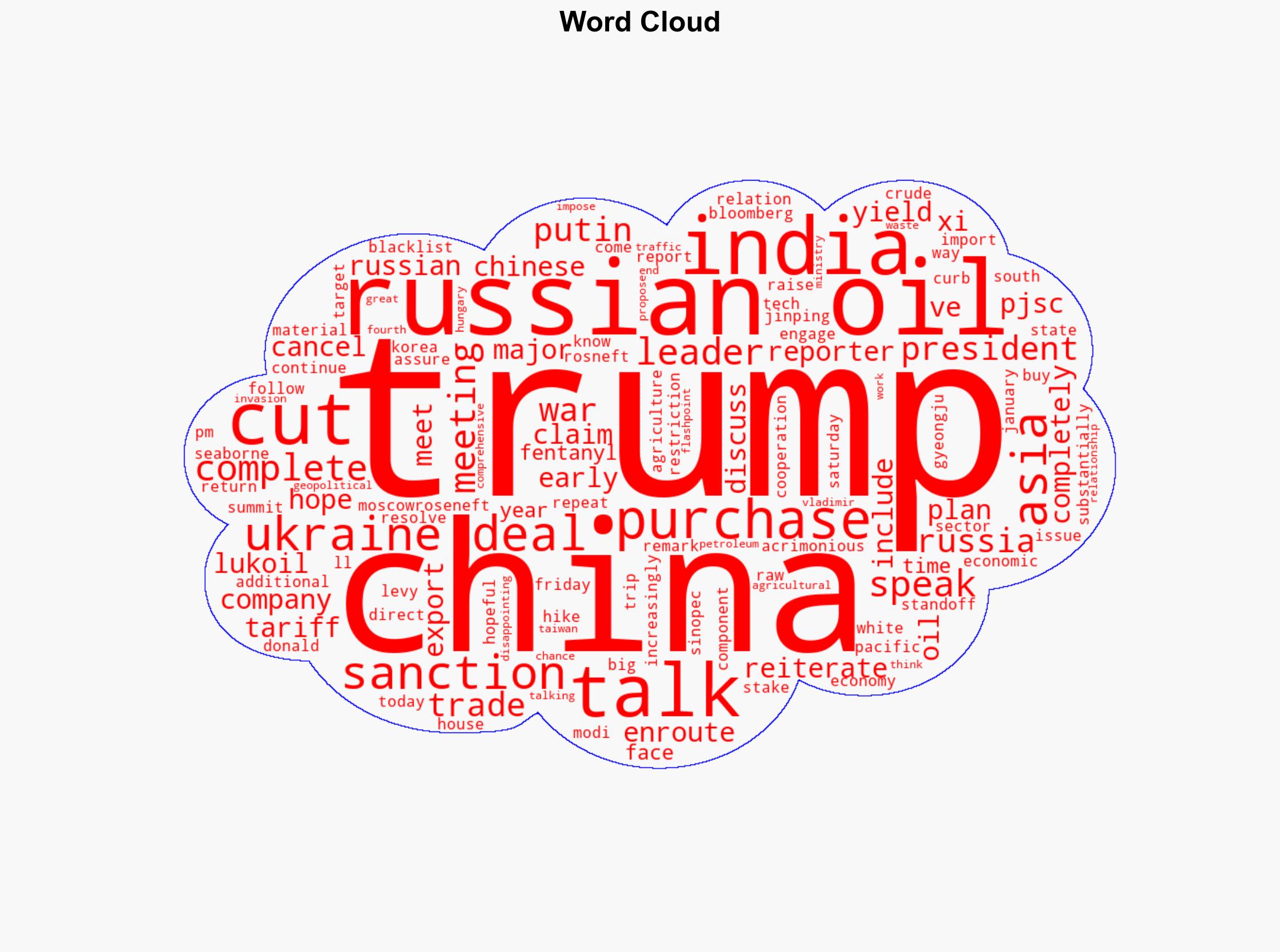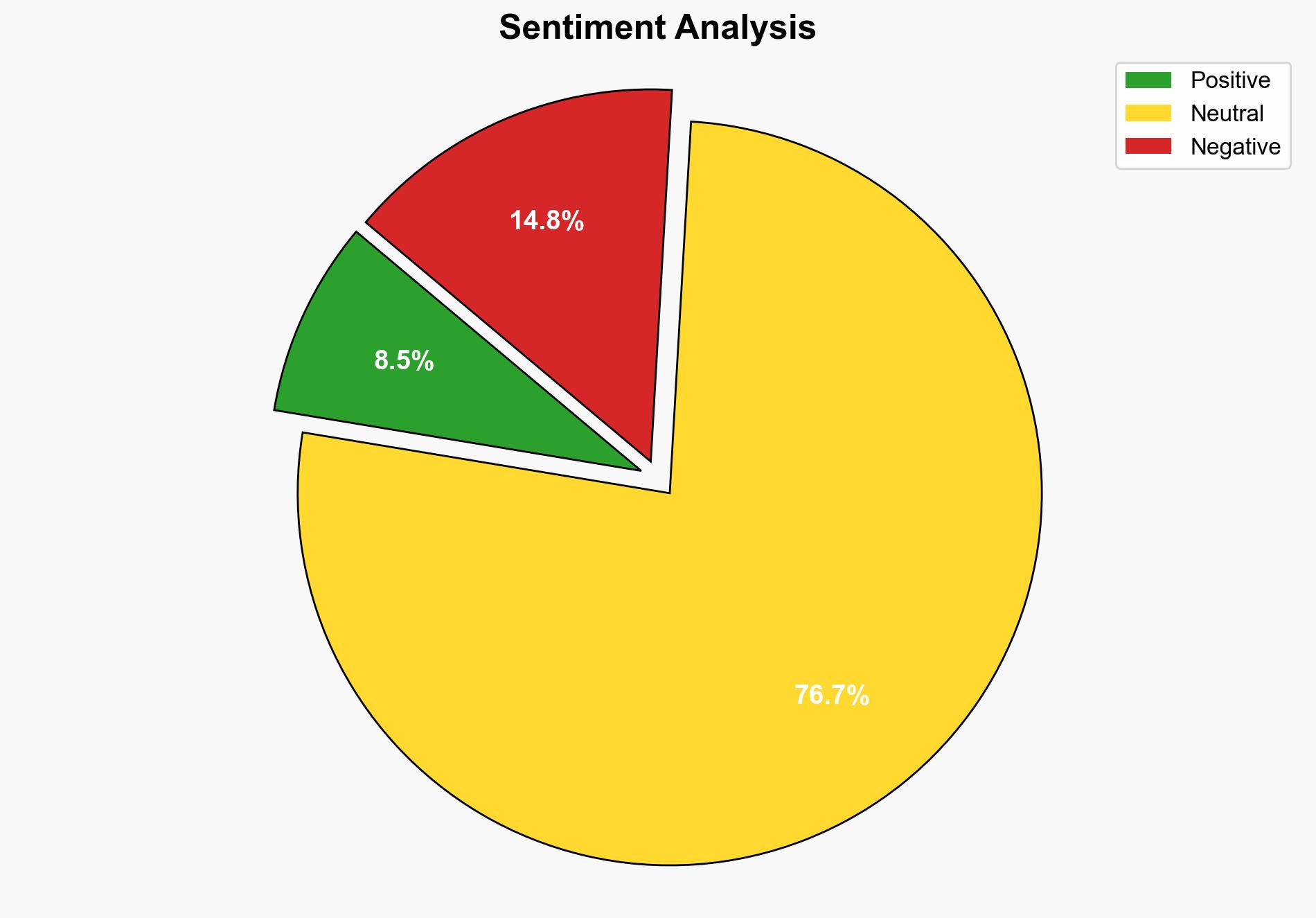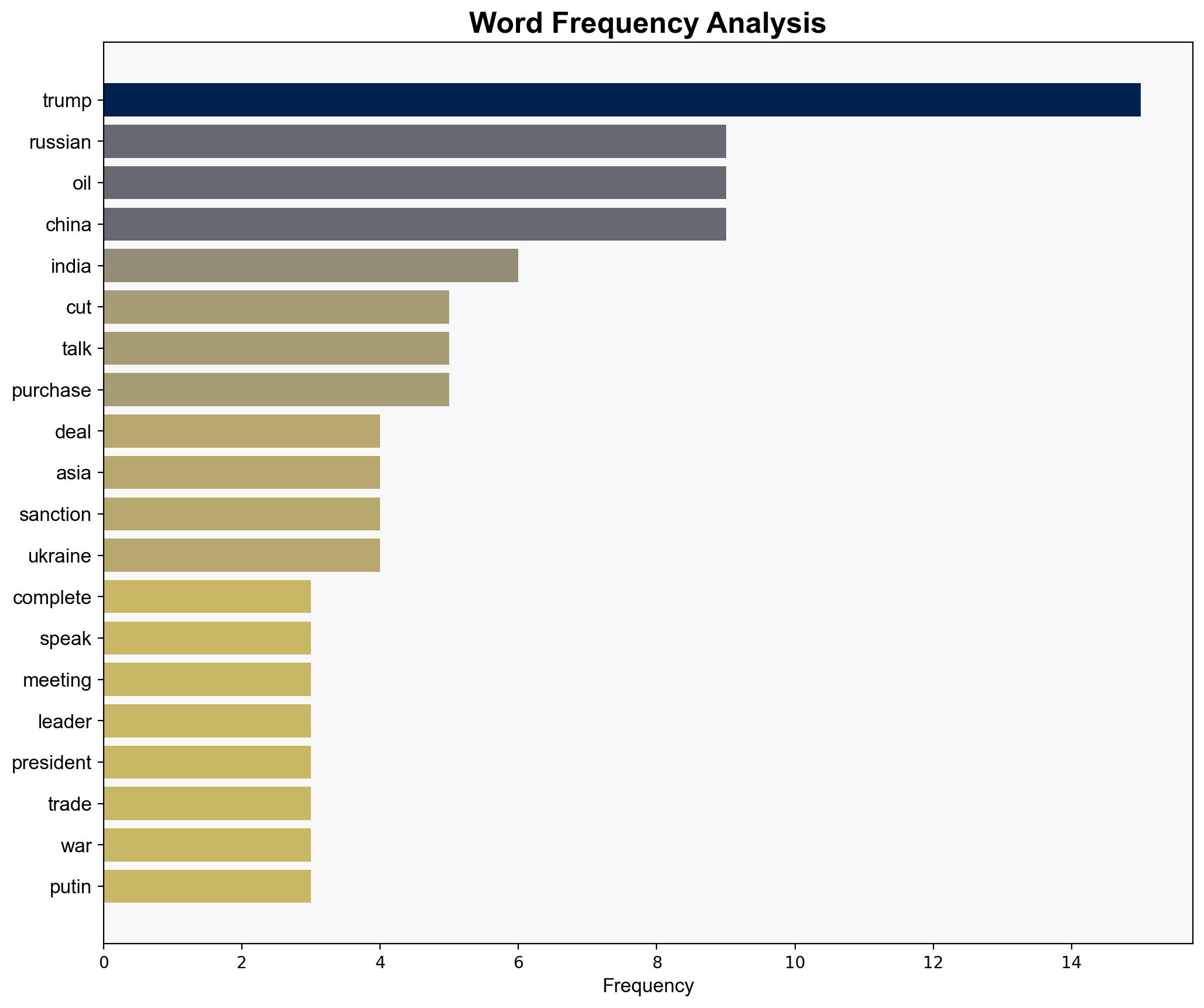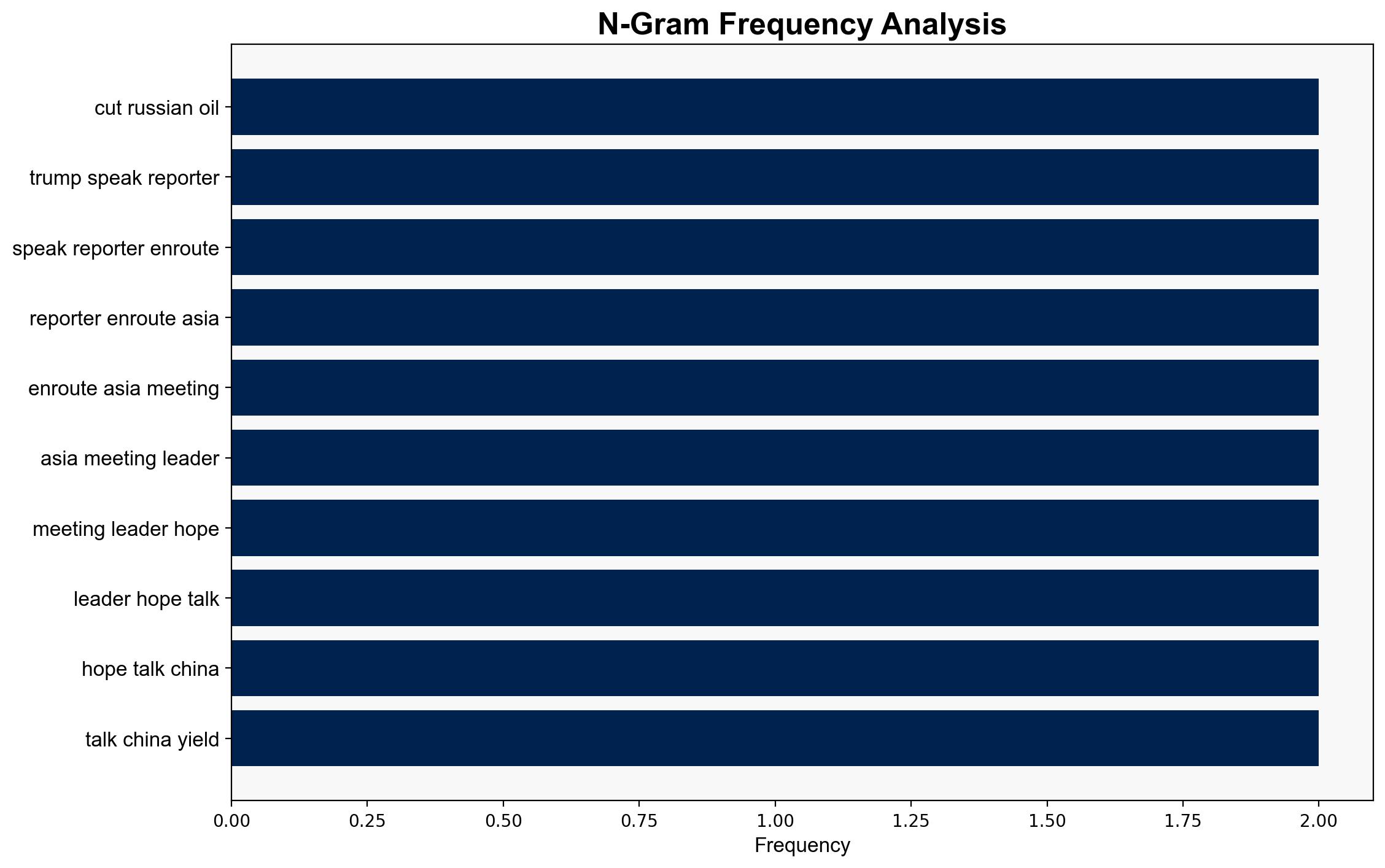‘India Cutting Back On Russian Oil’ Trump Ahead Of Key Meeting With China’s Xi – Ndtvprofit.com
Published on: 2025-10-26
Intelligence Report: ‘India Cutting Back On Russian Oil’ Trump Ahead Of Key Meeting With China’s Xi – Ndtvprofit.com
1. BLUF (Bottom Line Up Front)
The most supported hypothesis is that India’s reduction in Russian oil imports is a strategic alignment with U.S. sanctions and geopolitical interests, potentially to gain leverage in broader trade negotiations with China. Confidence level: Moderate. Recommended action: Monitor India’s energy trade policies and China’s response to U.S. diplomatic maneuvers, particularly in the context of upcoming summits.
2. Competing Hypotheses
1. **Hypothesis A**: India is reducing Russian oil imports primarily due to U.S. pressure and sanctions, aligning its energy policy with Western interests to strengthen its geopolitical stance against China.
2. **Hypothesis B**: India’s reduction in Russian oil imports is a tactical move to diversify its energy sources and reduce dependency on any single nation, independent of U.S. influence, to enhance its energy security.
Using ACH 2.0, Hypothesis A is better supported due to the timing of the reduction coinciding with U.S. diplomatic activities and sanctions rhetoric. Hypothesis B lacks direct evidence of diversification efforts independent of geopolitical pressures.
3. Key Assumptions and Red Flags
– **Assumptions**: It is assumed that India’s energy policy is heavily influenced by U.S. sanctions and that India seeks to align with Western geopolitical strategies.
– **Red Flags**: The report lacks specific data on India’s alternative energy sources or contracts, which could indicate a broader diversification strategy.
– **Cognitive Bias**: Confirmation bias may lead to overemphasizing U.S. influence without considering India’s independent strategic interests.
4. Implications and Strategic Risks
– **Economic**: India’s shift away from Russian oil could impact its energy costs and economic relations with Russia.
– **Geopolitical**: This move may strain India-Russia relations while potentially improving U.S.-India ties.
– **Escalation Scenarios**: If China perceives this as a U.S.-India alignment against its interests, it could retaliate economically or diplomatically, affecting regional stability.
5. Recommendations and Outlook
- Monitor India’s energy import patterns for signs of diversification or increased alignment with Western policies.
- Engage in diplomatic channels to clarify India’s strategic intentions and offer support for energy diversification.
- Scenario Projections:
- Best: India successfully diversifies energy sources, reducing geopolitical risks.
- Worst: China retaliates, leading to increased regional tensions.
- Most Likely: India maintains a balanced approach, leveraging U.S. relations without fully alienating Russia.
6. Key Individuals and Entities
– Donald Trump
– Xi Jinping
– Vladimir Putin
– Narendra Modi
– Rosneft PJSC
– Lukoil PJSC
– Sinopec
7. Thematic Tags
national security threats, energy security, geopolitical strategy, U.S.-India relations, China-U.S. tensions




